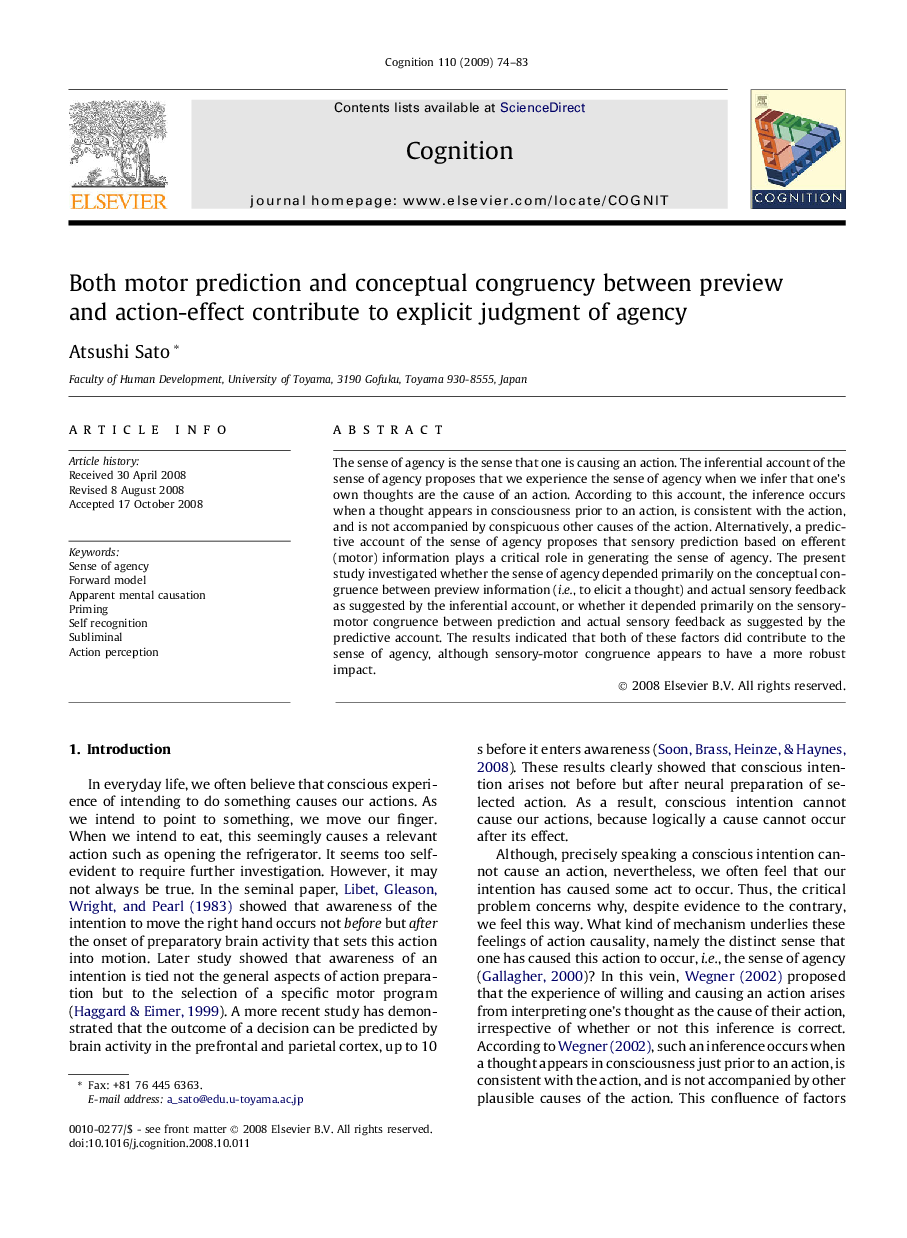| Article ID | Journal | Published Year | Pages | File Type |
|---|---|---|---|---|
| 926728 | Cognition | 2009 | 10 Pages |
The sense of agency is the sense that one is causing an action. The inferential account of the sense of agency proposes that we experience the sense of agency when we infer that one’s own thoughts are the cause of an action. According to this account, the inference occurs when a thought appears in consciousness prior to an action, is consistent with the action, and is not accompanied by conspicuous other causes of the action. Alternatively, a predictive account of the sense of agency proposes that sensory prediction based on efferent (motor) information plays a critical role in generating the sense of agency. The present study investigated whether the sense of agency depended primarily on the conceptual congruence between preview information (i.e., to elicit a thought) and actual sensory feedback as suggested by the inferential account, or whether it depended primarily on the sensory-motor congruence between prediction and actual sensory feedback as suggested by the predictive account. The results indicated that both of these factors did contribute to the sense of agency, although sensory-motor congruence appears to have a more robust impact.
